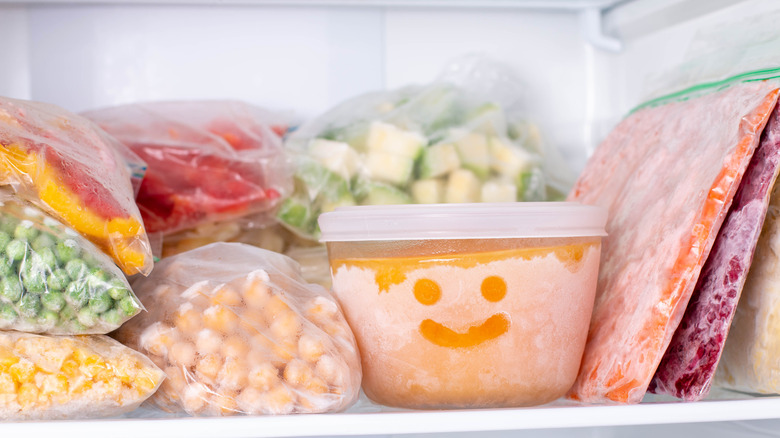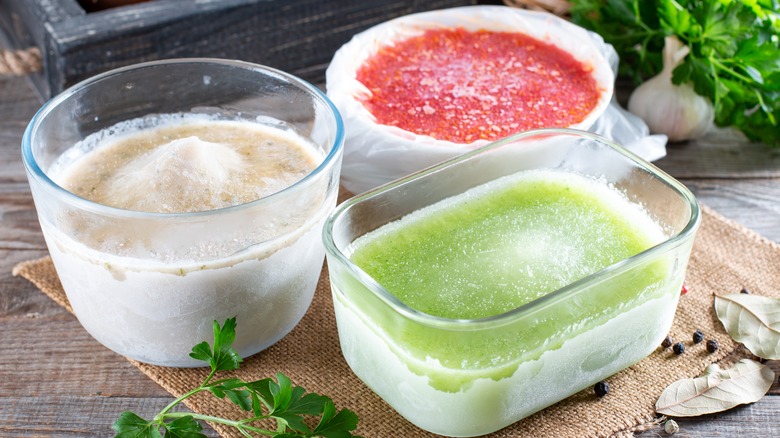You Can Freeze Soup, But Should You?
We may receive a commission on purchases made from links.
You've just finished making an entire pot of some classic, comforting matzo ball soup, only to find you're all matzo'd out after a bowl or two. And with quite a bit left over, you're left to decide where to properly store it. The fridge is always a viable choice. Even the freezer is, too, but that doesn't necessarily mean it's the best option to go with.
The freezer is meant to hold a lot of delicious things, whether it's bars of your favorite ice cream flavor or bags of frozen chicken nuggets from the grocery store. Certain products fare better than others when kept in this extra cold appliance, though. Soup is one of those foods that can in fact be safely stored in the freezer, but you should beware that it'll likely come out a bit different once it's completely thawed out. With there being both advantages and disadvantages, it's up to you whether or not to freeze your soup for the next time.
The pros and cons of freezing soup
One of the biggest positives to freezing your soup is the extended shelf life. While the fridge is a suitable choice for those expecting to eat it within the next three or four days, the freezer can make your soup last for up to a good three months if stored correctly. That's more than enough time to enjoy your portions as you please without feeling rushed to finish it all in one sitting.
However, the type of soup you're putting away makes a difference as well. Broth-based soups usually do just fine in the freezer. But depending on what ingredients your dish uses, some other recipes might experience a change in quality once you reheat it after having been frozen. This is more common for soups with creamy consistencies, such as a roasted tomato soup. You should also be wary of freezing soups that contain dairy, potatoes, pasta, or rice, as these ingredients will get mushy fast throughout the freezing and heating process. That's why it's best to avoid putting in such additives until right before you're ready to consume the soup. Lastly, the ice that forms as your soup freezes might eventually melt into the food when you reheat everything, causing a watered down taste.
How to properly freeze and thaw soup
Should you decide the freezer is a suitable place for your specific type of soup, it's important to use proper storage methods to make it last as long as possible. Before freezing your soup, make sure it's completely cooled down first. Once it's chilled, portion the soup into freezer-safe plastic bags or food storage containers. Just be sure to leave at least an inch of space at the top of the airtight container since the soup will expand as it freezes. Label your container with the date, and you're all ready to stick them in the freezer.
Thawing your soup is just as uncomplicated. Take the amount of frozen soup you plan to use from the freezer and leave it in the refrigerator until it softens. It's best to do this overnight if possible. From there, put the soup into a microwave-safe bowl and heat it up in half-minute bursts until it's at the desired temperature. You can also use a stove instead.


